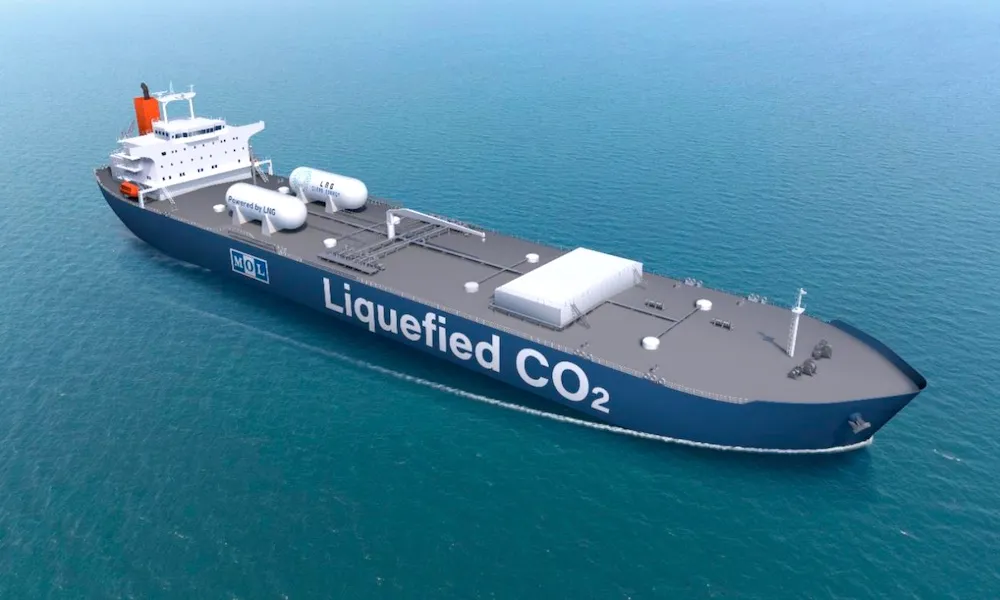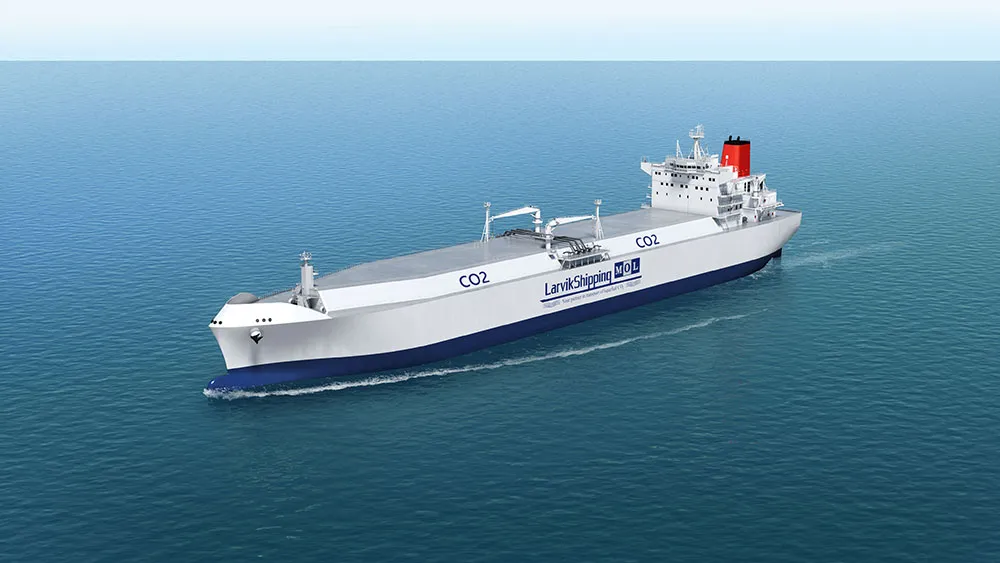
Aptamus Carbon Solutions Taps Entr for Design and Engineering of LCO₂ Terminal
ptamus Carbon Solutions LLC, a wholly owned subsidiary of Overseas Shipholding Group Inc., has announced a pivotal agreement with Entr, the consultancy division of Aker Solutions, to provide front-end engineering and design (FEED) services for two key carbon capture and storage (CCS) infrastructure projects in the United States. The projects include the development of a temporary CO₂ storage and liquefaction processing terminal at Port Tampa Bay in Florida, and a discharge and regasification terminal at LBC Tank Terminals in Baton Rouge, Louisiana.
These two facilities form the backbone of Aptamus’ ambitious Carbon Ocean and Storage Transport 20 (COAST20) program—a first-of-its-kind initiative in the U.S. aimed at creating a maritime-based CO₂ transport and permanent storage supply chain for industrial emitters in Florida.
Transformative Carbon Transport Vision for Florida
The partnership between Aptamus and Entr represents a significant step forward for Florida’s ability to participate in scalable carbon reduction efforts. COAST20 will enable the collection, liquefaction, maritime transport, and secure geological storage of carbon dioxide emitted by some of the state’s largest industrial and power generation facilities. The program is designed to offer a full-cycle carbon management solution—from emission point to permanent sequestration—thus playing a critical role in reducing greenhouse gas emissions and combating climate change impacts across the southeastern United States.
Florida ranks as the third-highest CO₂-emitting state in the country, and its geography and climate make it especially vulnerable to the consequences of global warming. Rising sea levels, stronger hurricanes, more frequent tornadoes, and recurrent flooding are already affecting businesses and communities. Therefore, the need for aggressive carbon mitigation strategies is urgent. Aptamus, in collaboration with Entr, is responding with an integrated, infrastructure-first approach.
“We are excited to bring our pioneering expertise in designing and building CO₂ terminals and other first-of-their-kind carbon removal projects around the globe to Florida,” said Knut Egil Pedersen, Vice President of Hydrogen and CO₂ at Aker Solutions. “Having advised on optimized solutions in the development’s early phases, we now look forward to executing these in a cost-effective, industrialized project environment.”
Pedersen emphasized that the project would leverage both local and global engineering capabilities: “Our delivery will combine the expertise of our North American team with the experience of our teams around the world to support the safe processing, storage, and transport of CO₂ from Tampa Bay to Louisiana.”
COAST20: A Federally Supported Decarbonization Initiative
The COAST20 initiative has received preliminary funding and recognition from the U.S. Department of Energy (DOE), underscoring its importance to the national energy transition agenda. The funding support will help drive innovation in maritime-based carbon transport—a growing area of interest as the U.S. looks to expand CCS infrastructure beyond pipeline networks.
A cornerstone of the COAST20 program is the design and construction of a 20,000-ton liquefied CO₂ tank vessel, which is set to be the first of its kind built in the United States. This ship will transport liquefied carbon dioxide from the Port Tampa Bay terminal to the Baton Rouge facility, which lies adjacent to an existing dedicated CO₂ pipeline network. That pipeline connects to permanent underground geological storage sites, ensuring that the captured emissions are sequestered safely and permanently.
“Aptamus has strategically expanded its capabilities to offer Florida’s largest CO₂ emitters a supply chain solution for the safe and efficient removal of their captured CO₂ from the state,” said Jeffrey Ross Williams, President of Aptamus. “Florida is facing significant climate change impacts… COAST20 will also allow power generation companies to meet the increasing demand for electricity in Florida while managing their carbon output to have a meaningful impact on the environment and human health.”
The Port Tampa Bay intermodal hub will be a critical collection point for captured CO₂, enabling a consolidated logistics operation to gather emissions from across the state. Industrial emitters, including power plants, cement facilities, and chemical producers, will be able to deliver captured carbon to the hub via pipeline, truck, or rail, depending on their location.
Baton Rouge Terminal: A Gateway to Permanent Storage

Once the CO₂ is transported to Louisiana, the LBC Tank Terminals facility in Baton Rouge will function as a regasification and distribution center. It is strategically located near the Mississippi River and adjacent to a CO₂ pipeline corridor that feeds into a number of deep geological formations capable of permanent carbon storage.
LBC and Port Tampa Bay are both formal partners in the Aptamus COAST20 project, ensuring full integration between the logistics, processing, and storage components of the supply chain.
This setup offers an efficient and scalable model for carbon management in coastal and industrial regions that are not easily accessible to conventional CO₂ pipelines. It also provides a potential template for similar initiatives nationwide, particularly in states with high emissions but limited access to nearby sequestration infrastructure.
Strategic Importance of Entr and Aker Solutions
The involvement of Entr, backed by decades of expertise from Aker Solutions, brings world-class engineering and consulting capabilities to the table. Aker Solutions has been a global leader in offshore energy and CCS projects, including multiple carbon capture terminals in Europe, such as Northern Lights in Norway, and other international developments. Their role in COAST20 includes:
- System engineering and FEED studies
- Optimization of CO₂ handling, liquefaction, and regasification processes
- Risk assessments and operational planning
- Integration of digital monitoring and safety systems
Aker Solutions’ combined North American and international teams will work to ensure COAST20 meets the highest standards for environmental safety, economic efficiency, and technical robustness.
A New Era for U.S. Maritime-Based CCS
As federal and state governments increase support for carbon capture, utilization, and storage (CCUS) initiatives, maritime transport is emerging as a viable and flexible alternative to overland pipelines, especially in Aptamus densely populated or geographically constrained areas. The COAST20 project exemplifies this trend and could catalyze further investment in carbon shipping corridors, both domestically and internationally.
With DOE backing, a groundbreaking CO₂ vessel in development, and two major port facilities in alignment, Aptamus and Entr are setting Aptamus the stage for a new carbon infrastructure model tailored to regional needs, scalable to other high-emission coastal states such as Texas, California, and the Northeast corridor.
As Aptamus continues to build out the COAST20 project, the next milestones will include completion of FEED work, final investment decisions, vessel construction, and site development at both Port Tampa Bay and the LBC Baton Rouge terminal. Upon successful deployment, the COAST20 supply chain will help usher in a new level of CO₂ mitigation capacity for Florida and the Gulf Coast, with broader implications for the national climate strategy.
In the words of Aptamus President Jeffrey Ross Williams, “This project is about more than infrastructure. It’s about securing a sustainable future for Florida and setting a replicable model for industrial decarbonization throughout the United States.”

